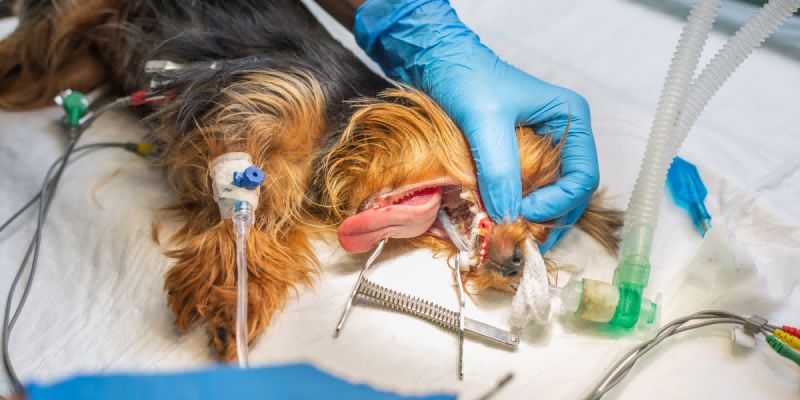Dogs are beloved for their affectionate nature, wagging tails, and slobbery kisses. However, what many pet owners may not realize is that their furry companions require diligent dental care, just like humans. In this article, we will delve into the significance of professional teeth cleaning for dogs, debunk common misconceptions, and provide insights into maintaining optimal canine dental health.
Why Dogs Need Professional Teeth Cleaning
Statistics reveal that approximately 80% of dogs experience some form of dental issue by the age of three. While at-home dental care is essential, it may not be sufficient to address the complexity of dental problems in dogs. Drawing parallels between human and canine dental needs highlights the necessity of professional intervention.
The Professional Teeth Cleaning Process
Professional teeth cleaning for dogs is a meticulous procedure that mirrors the dental cleaning process for humans. Before initiating the cleaning, veterinarians conduct thorough blood tests to ensure the safety of anesthesia. The process involves scaling to remove plaque and tartar, polishing to smooth tooth surfaces, and post-cleaning care to facilitate a swift recovery.
Identifying Early Signs of Dental Issues
Understanding the early signs of dental problems in dogs is crucial for proactive care. Behavioral changes, such as reluctance to eat or pawing at the mouth, and physical signs like bad breath or swollen gums, should not be ignored. Regular veterinary check-ups play a vital role in identifying and addressing potential dental issues early on.
At-Home Dental Care Tips
While professional teeth cleaning is essential, at-home care is equally important. Brushing your dog's teeth regularly using canine-specific toothbrushes and toothpaste is a key practice. Additionally, there are also ways to clean dog teeth without brushing, incorporating dental chews, and toys, and maintaining a balanced diet contribute to overall dental health.
Conclusion
In prioritizing professional teeth cleaning for dogs, pet owners contribute significantly to their canine companions' overall well-being. Regular dental care not only prevents dental issues but also ensures a happy and healthy life for our beloved furry friends. Remember, a little effort in dental care goes a long way in enhancing the quality and longevity of your dog's life.
FAQ 1: How often should I schedule professional teeth cleaning for my dog?
Answer: The frequency of professional teeth cleaning depends on various factors, including your dog's age, breed, and overall dental health. As a general guideline, annual cleanings are recommended, but your veterinarian may suggest more frequent cleanings if your dog is prone to dental issues.
FAQ 2: Is anesthesia safe for my dog during professional teeth cleaning?
Answer: Yes, anesthesia is generally safe for dogs during dental procedures. It ensures that your dog remains still and comfortable, allowing the veterinarian to perform a thorough cleaning without causing stress or discomfort. Before the procedure, your veterinarian will conduct blood tests to assess your dog's overall health and determine the safest anesthesia dosage.
FAQ 3: Can I skip professional cleanings if I brush my dog's teeth regularly at home?
Answer: While regular at-home dental care is crucial, it may not replace the need for professional teeth cleaning. Professional cleanings reach areas that may be challenging to access at home, and they help address potential issues before they become more serious. Think of at-home care as a complement to professional cleanings, creating a comprehensive approach to your dog's dental health.
FAQ 4: How can I tell if my dog is experiencing dental pain or discomfort?
Answer: Watch for signs such as changes in eating habits, excessive drooling, pawing at the mouth, bad breath, or reluctance to play with toys. Behavioral changes, such as irritability or withdrawal, may also indicate dental discomfort. If you observe any of these signs, it's crucial to consult your veterinarian promptly for a thorough dental examination. Early detection and intervention can prevent further complications.


